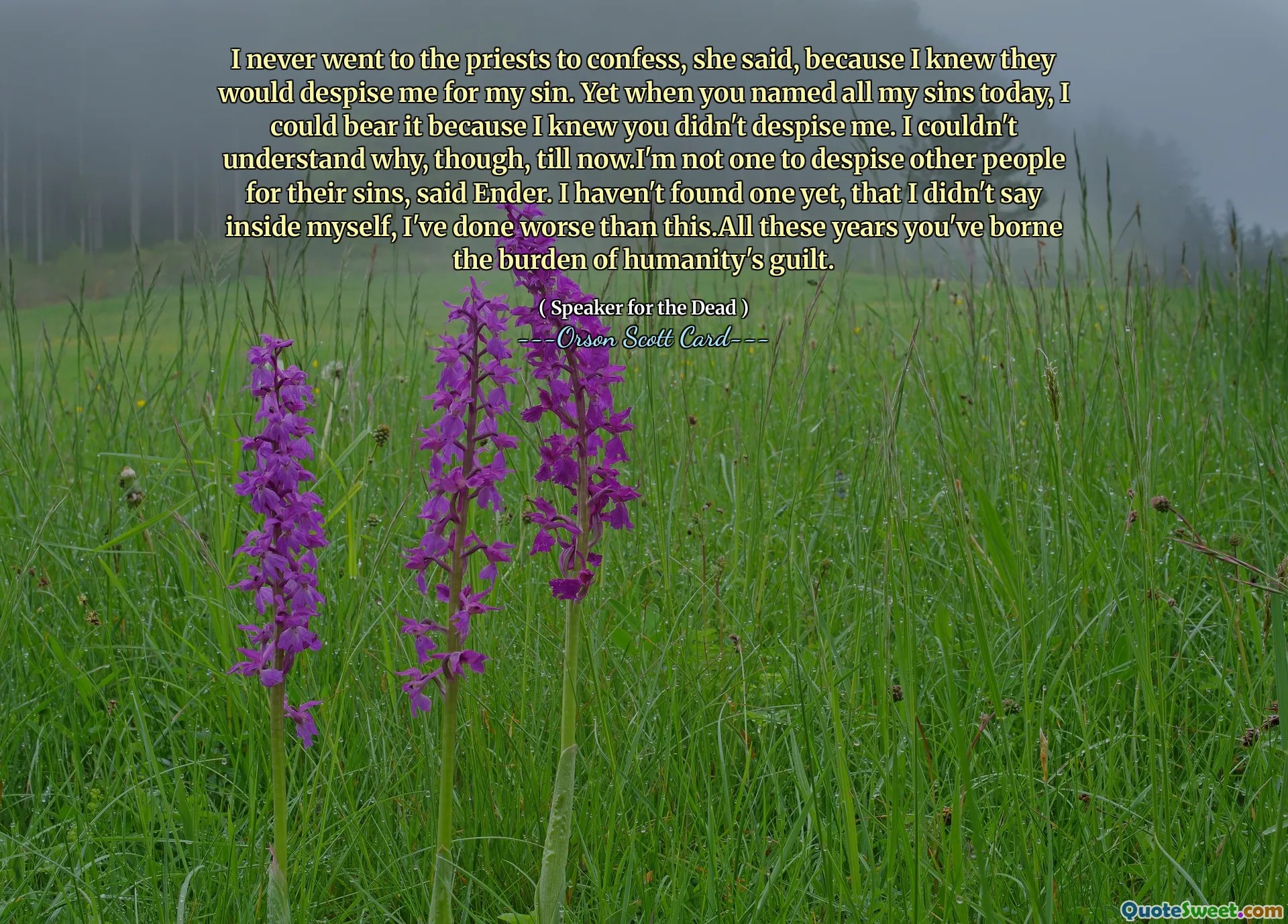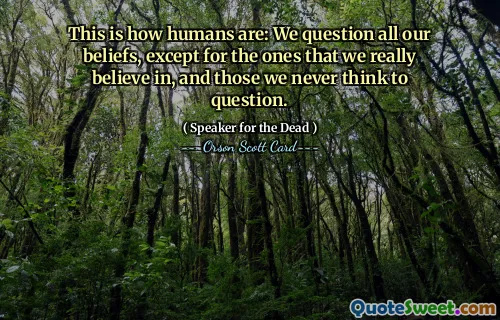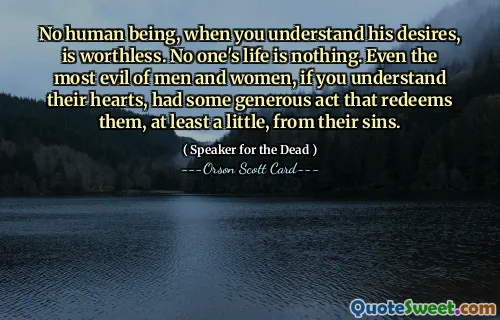
I never went to the priests to confess, she said, because I knew they would despise me for my sin. Yet when you named all my sins today, I could bear it because I knew you didn't despise me. I couldn't understand why, though, till now.I'm not one to despise other people for their sins, said Ender. I haven't found one yet, that I didn't say inside myself, I've done worse than this.All these years you've borne the burden of humanity's guilt.
In "Speaker for the Dead" by Orson Scott Card, a character reflects on her reluctance to seek confession from priests due to fear of being judged harshly for her sins. She finds solace in the presence of Ender, who has shown understanding and compassion rather than disdain. This realization allows her to confront her own guilt, demonstrating the significance of acceptance over judgment in dealing with personal transgressions.
Ender shares his perspective, expressing that he cannot look upon others’ sins with contempt because he recognizes his own shortcomings. His empathetic approach highlights the idea that every individual carries their own burden of guilt, suggesting that understanding and compassion can facilitate healing and connection. Ultimately, the dialogue encapsulates the theme of human empathy and the struggle with guilt and redemption.











